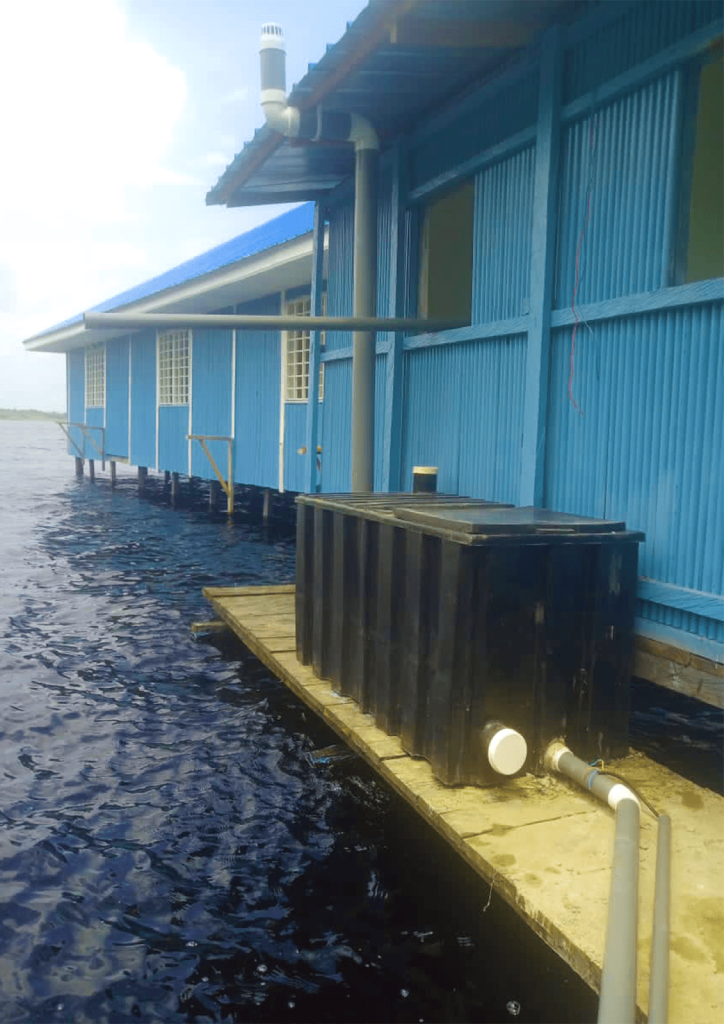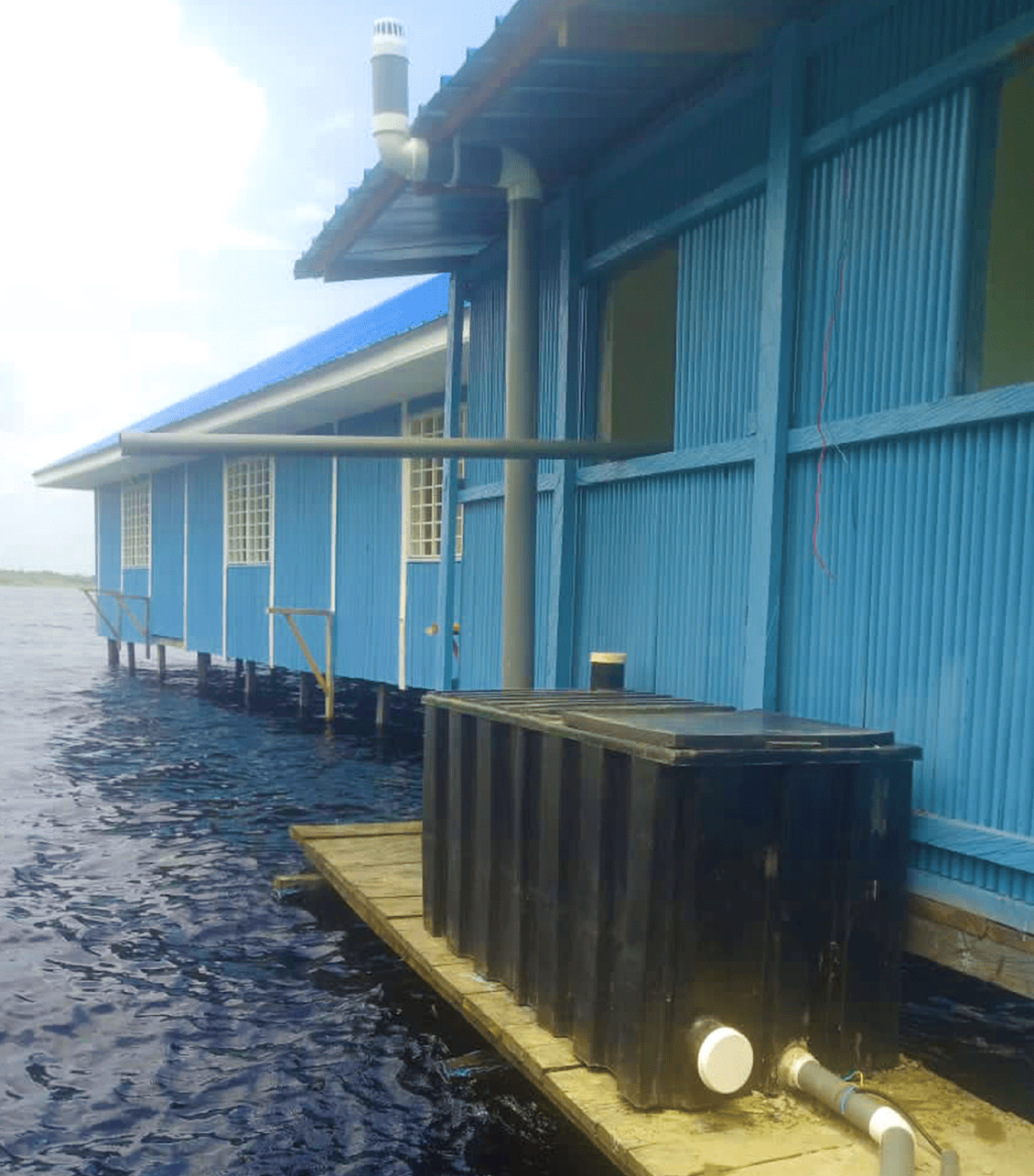In the beautiful community of Nzulezu, perched above a lagoon on the western coast of Ghana, a remarkable transformation is taking place. This village, built on stilts, is known for its unique lifestyle and breathtaking views. However, with limited access to sanitation facilities, the community faced challenges in maintaining cleanliness and hygiene. But now, a groundbreaking solution has arrived – the bio-digester. This innovative technology is set to revolutionize sanitation in Nzulezu, offering clean, efficient, and eco-friendly solutions tailored to the village’s distinct lifestyle. In this blog, we will explore how the introduction of bio-digesters is making waves in more ways than one, transforming the lives of the residents and paving the way for a sustainable future.

Life in Nzulezu
Before we delve into the bio-digester technology, let’s explore the unique lifestyle and challenges faced by the community of Nzulezu. Located far from major urban centers, the village relies on the lagoon as its primary water source. With buildings constructed on stilts, the preservation of hygiene and sanitation has posed significant challenges. We will provide a vivid portrayal of life in Nzulezu, highlighting the importance of sustainable sanitation solutions tailored to the village’s water-centric lifestyle.
Tailored Solutions for Nzulezu
In the quest for sustainable waste management solutions, bio-digesters have emerged as a versatile technology. However, it is crucial to understand that one size does not fit all when it comes to implementing these systems. This section will focus on the unique case of Nzulezu, a remarkable village built on stilts in Ghana. We will explore how bio-digester technology has been tailored to address the specific challenges and characteristics of this water-centric environment. By incorporating the principles of renewable energy generation, waste treatment, and community empowerment, Nzulezu serves as a prime example of the customization and success of bio-digester solutions.
The bio-digester systems in Nzulezu have been custom-designed to allow toilets to be directly connected to the bio-digesters, ensuring efficient waste processing without the need for extensive plumbing infrastructure. This approach minimizes the need for extensive plumbing infrastructure and ensures that waste is efficiently processed. By harnessing the power of anaerobic digestion, organic waste is broken down, reducing the volume and preventing potential contamination of the surrounding water bodies.
Additionally, the customized bio-digester systems in Nzulezu incorporate features that address the unique environmental conditions. These systems are designed to be resilient, considering factors such as fluctuating water levels, exposure to the elements, and the village’s cultural practices. The materials used in construction are carefully chosen to withstand the harsh conditions and promote longevity.
Benefits and Impact
The benefits of bio-digesters in Nzulezu are multi-faceted and wide-ranging. The environmental advantages, such as the reduction of greenhouse gas emissions and the preservation of water quality in the lagoon. Additionally, we will highlight the social and economic impact, including improved health and hygiene, increased access to clean water for daily needs, and potential opportunities for income generation through the use of bio-digesters. By emphasizing these benefits, readers will gain a comprehensive understanding of the positive transformation bio-digesters are bringing to the community.
Empowering Sustainability in Nzulezu
In the quest for sustainable development, empowering communities to take ownership of their actions and embrace sustainable practices is crucial. This holds especially true for the unique village of Nzulezu, where the introduction of bio-digesters has revolutionized sanitation practices. However, the journey towards sustainability does not end with the implementation of innovative technologies. It requires ongoing community involvement, education, and awareness to ensure a lasting impact.
Empowering sustainability in Nzulezu begins with fostering a sense of ownership among the residents. By actively involving the community in decision-making processes and encouraging their participation in the maintenance and management of bio-digesters, a culture of sustainability takes root. This engagement empowers individuals to take responsibility for their actions, ensuring the long-term success of sustainable sanitation solutions.
Education plays a vital role in empowering sustainability. By providing knowledge about the benefits of bio-digesters, the importance of proper waste management, and the impact on the environment and health, community members can make informed choices. Raising awareness about the interconnectedness of their actions with the well-being of their environment fosters a sense of stewardship towards the lagoon and surrounding ecosystem.
Empowering sustainability in Nzulezu goes beyond the boundaries of the village. Sharing success stories and lessons learned with neighboring communities and beyond can inspire others to embrace sustainable practices. By becoming a model for sustainable sanitation in the region, Nzulezu can contribute to a wider movement towards a cleaner and greener future.
The introduction of bio-digesters in Nzulezu marks a significant milestone in revolutionizing sanitation practices within the village. The tailor-made solutions offered by this innovative technology cater to the unique lifestyle and challenges of the water-centric community. By harnessing the power of bio-digesters, Nzulezu is paving the way for a sustainable future, ensuring improved sanitation, cleaner water, and a healthier environment for generations to come. Let us celebrate this remarkable transformation and encourage the adoption of similar sustainable solutions in other communities worldwide.

